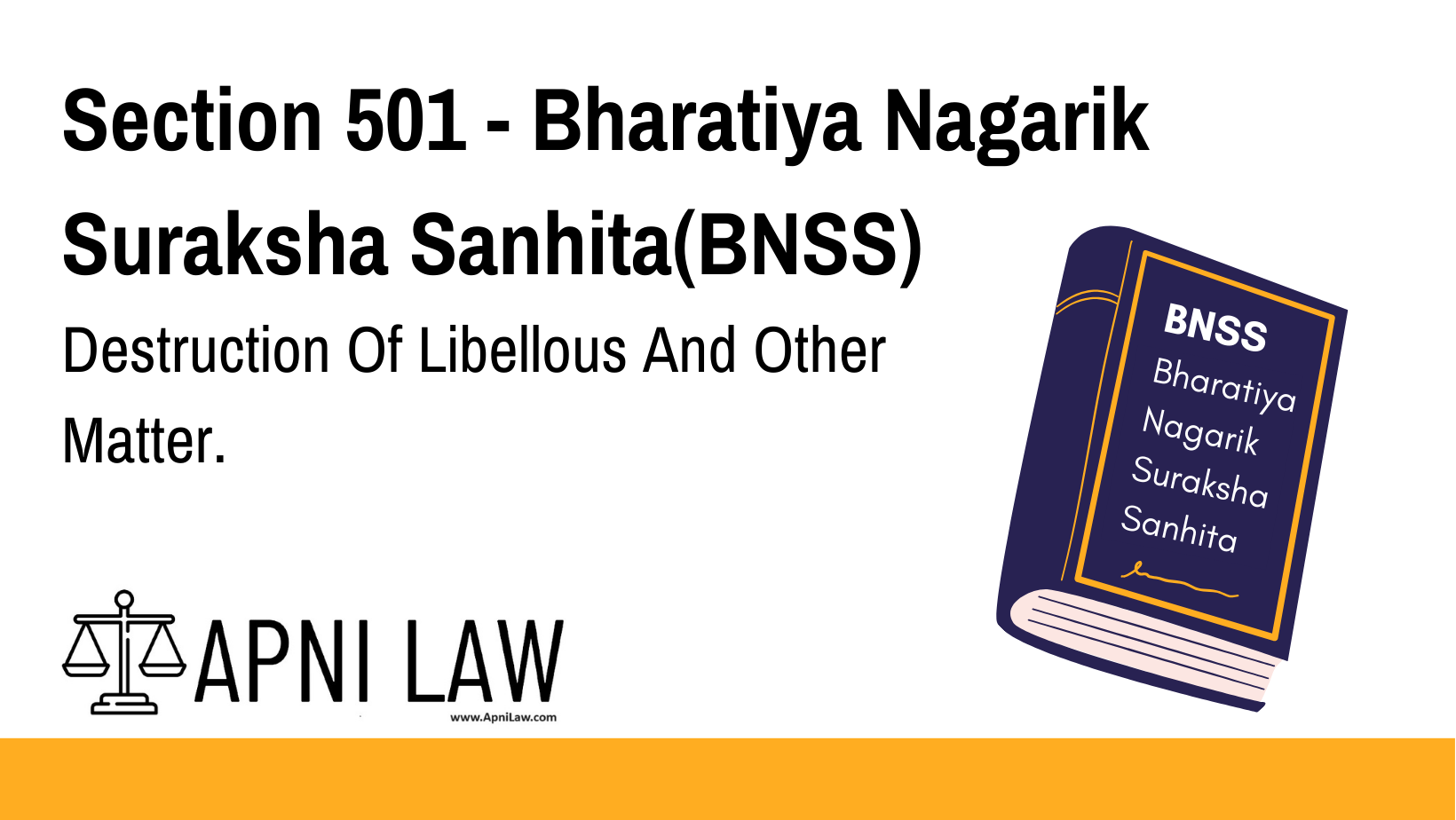Code: Section 501 BNSS
(1) On a conviction under section 294, section 295, or sub-sections (3) and (4) of
section 356 of the Bharatiya Nyaya Sanhita, 2023, the Court may order the destruction of all
the copies of the thing in respect of which the conviction was had, and which are in the
custody of the Court or remain in the possession or power of the person convicted.
(2) The Court may, in like manner, on a conviction under section 274, section 275,
section 276 or section 277 of the Bharatiya Nyaya Sanhita, 2023, order the food, drink, drug
or medical preparation in respect of which the conviction was had, to be destroyed.
Explanation of Section 501 BNSS
Section 501 of the BNSS deals with the destruction of offensive or harmful materials upon conviction for specific offenses. This includes:
- Libellous or Obscene Materials: If someone is convicted under Sections 294, 295, or certain parts of Section 356, the Court has the authority to order the destruction of any copies of the material involved. This helps prevent further dissemination of harmful content.
- Adulterated Substances: For offenses under Sections 274, 275, 276, and 277, which relate to the sale of adulterated food, drinks, drugs, or medical preparations, the Court can order the destruction of the offending items to protect public health.
This provision ensures that materials or products posing a threat to societal values, public health, or religious sentiments are appropriately disposed of after legal proceedings.
Illustration
Example 1: Destruction of Obscene Materials
A person is convicted under Section 294 BNSS for distributing obscene pamphlets. The Court orders the destruction of all such pamphlets in the accused’s possession, as well as those held by the Court.
Example 2: Disposal of Adulterated Food
A food manufacturer is convicted under Section 274 BNSS for selling adulterated food. The Court orders the immediate destruction of all the adulterated food products found in their possession.
Common Questions and Answers on Section 501 BNSS
1. What types of materials can be ordered for destruction under Section 501?
- Answer: Materials such as obscene publications, libellous content, and adulterated food, drinks, drugs, or medical preparations can be ordered for destruction.
2. Who has the authority to decide whether the material should be destroyed?
- Answer: The Court handling the conviction has the authority to order the destruction of the materials.
3. Can the destroyed items be reclaimed after conviction?
- Answer: No, once the Court orders destruction, the items are disposed of permanently and cannot be reclaimed.
4. Is Section 501 applicable to both physical and digital content?
- Answer: The section primarily refers to physical items, but legal interpretations may evolve to cover digital content, especially in cases involving electronic publications.
Conclusion
Section 501 BNSS plays a crucial role in upholding public morals, health, and societal norms by allowing courts to order the destruction of offensive materials and adulterated substances. This provision ensures that once a conviction is secured, the harmful items are permanently removed from circulation, thereby safeguarding the public interest.








